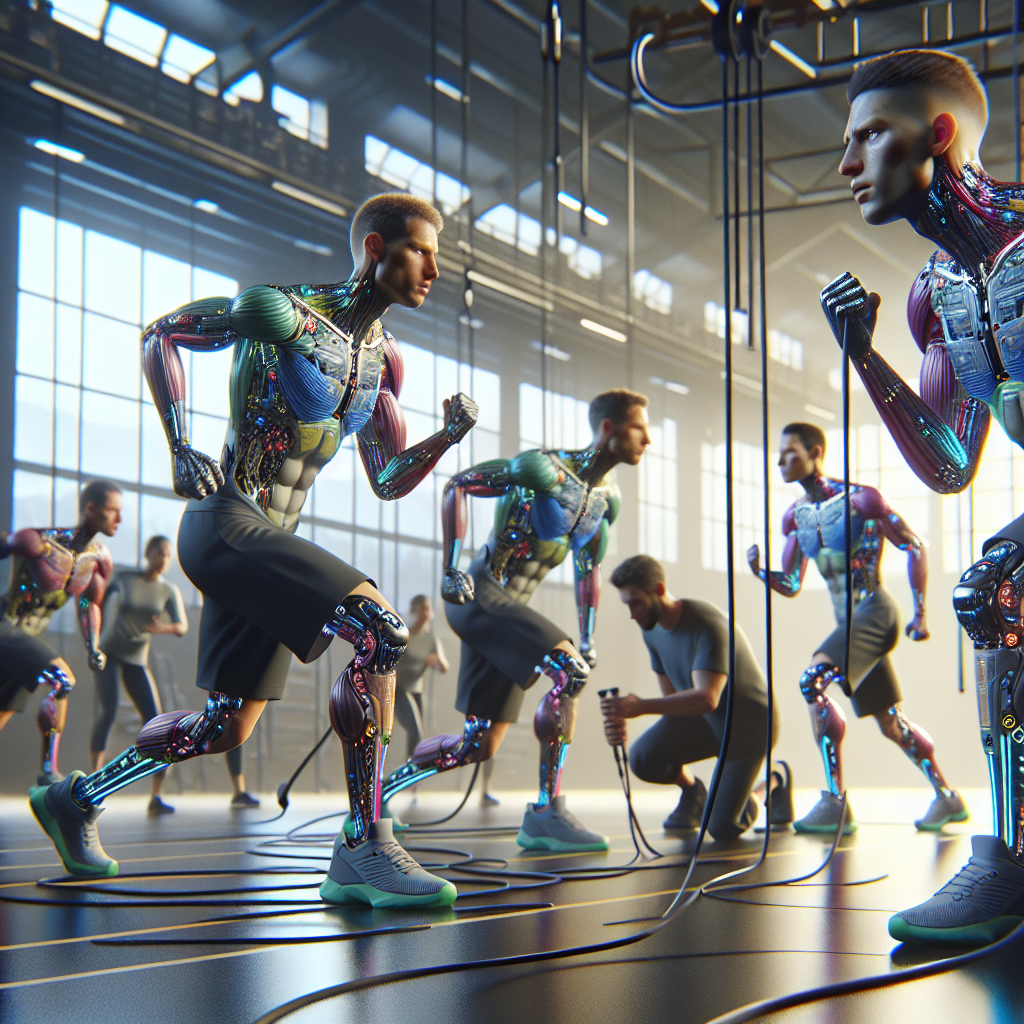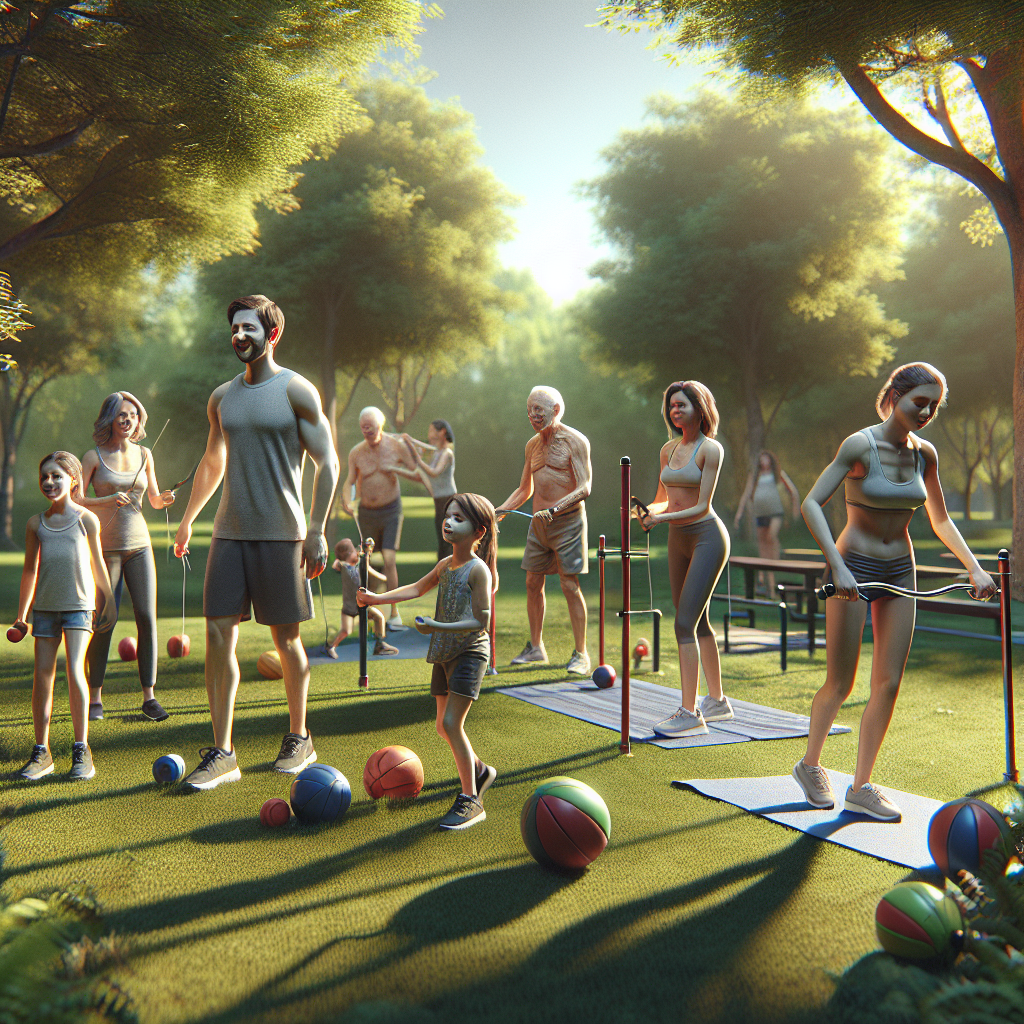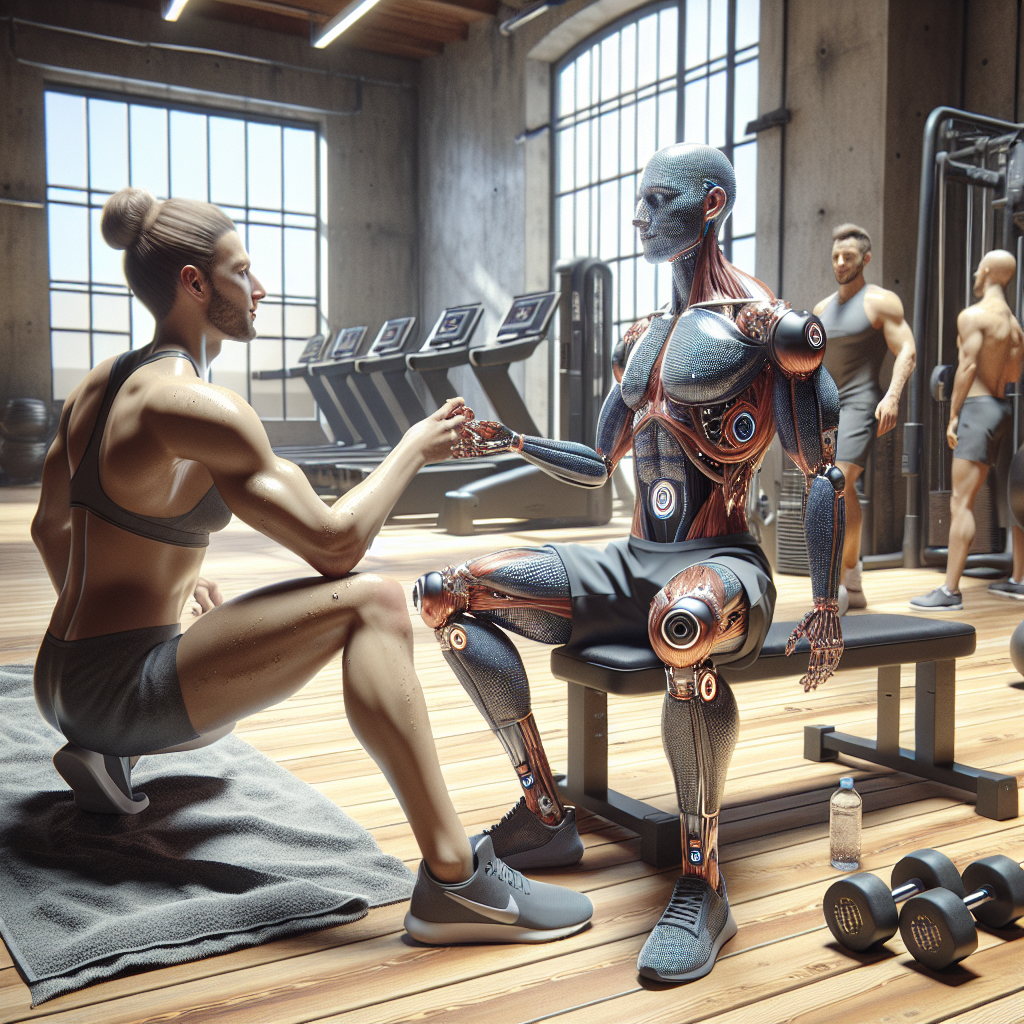AI-driven fitness apps are revolutionizing the way physical activity is promoted among children. These digital platforms leverage artificial intelligence to create personalized fitness programs that cater to individual needs, preferences, and abilities, effectively motivating children to engage in regular physical activity. This article delves into the multifaceted role of AI-driven fitness apps in inspiring physical activity among youth, examining their features, benefits, and the challenges they address while offering a comprehensive view of their potential impact on children’s health and well-being.
The Growing Need for Physical Activity Among Children
In recent years, the importance of physical activity for children has gained increasing attention. With the rise of sedentary lifestyles, partly due to increased screen time, there is a pressing need to encourage more active habits from a young age. According to the World Health Organization, children and adolescents aged 5-17 should engage in at least 60 minutes of moderate to vigorous-intensity physical activity daily. However, studies indicate that a significant percentage of children do not meet these guidelines, leading to concerns about rising obesity rates and associated health issues.
The Impact of Sedentary Lifestyles
Sedentary lifestyles in children have been linked to a range of health issues, including obesity, cardiovascular diseases, and mental health disorders. Lack of physical activity not only impacts physical health but also affects cognitive development and emotional well-being. Children who are physically active tend to have better concentration, improved mood, and higher academic performance.
Statistics on Child Physical Inactivity
| Region | % of Inactive Children |
|---|---|
| North America | 25% |
| Europe | 30% |
| Asia | 40% |
| Global Average | 33% |
Challenges in Promoting Physical Activity
Promoting physical activity among children is fraught with challenges. These include limited access to safe play areas, lack of motivation, and competing interests such as video games and online content. Parents and educators often struggle to find effective ways to encourage regular physical activity in children, making innovative solutions like AI-driven fitness apps particularly appealing.
How AI-Driven Fitness Apps Work
AI-driven fitness apps utilize artificial intelligence technologies to deliver customized fitness experiences. By analyzing user data, these apps can adapt workouts to suit individual fitness levels, preferences, and goals. This personalization is key to maintaining engagement and motivation among young users.
Key Features of AI-Driven Fitness Apps for Children
- Personalized Workouts: Based on data inputs such as age, weight, and fitness level, apps tailor workouts to suit individual needs.
- Gamification: Incorporates game-like elements such as rewards, challenges, and leaderboards to make exercise fun and engaging.
- Progress Tracking: Tracks physical activity, providing insights into progress and areas for improvement.
- Parental Controls: Allows parents to monitor activity and set goals, ensuring a safe and healthy exercise environment.
- AI-Powered Feedback: Provides real-time feedback and encouragement, helping to maintain motivation and correct form.
Example of AI-Driven Fitness App Features
| Feature | Description |
|---|---|
| AI-Generated Workouts | Customizes exercises based on user data and goals. |
| Virtual Coaches | Offers guided workouts with virtual trainers. |
| Interactive Challenges | Engages children with fun and competitive activities. |
| Social Interaction | Enables connection and competition with peers. |
The Benefits of AI-Driven Fitness Apps for Children
AI-driven fitness apps offer numerous benefits in promoting physical activity among children. These advantages extend beyond physical health, influencing mental and emotional well-being as well.
Encouraging Regular Physical Activity
By making physical activity engaging and rewarding, AI-driven fitness apps encourage children to develop lifelong healthy habits. The personalized nature of these apps ensures that activities remain challenging yet achievable, keeping children motivated and active.
Enhancing Engagement Through Gamification
Gamification is a powerful tool in capturing the interest of young users. By integrating elements such as points, badges, and challenges, AI-driven fitness apps transform exercise into an exciting activity. This approach not only motivates children to participate but also fosters a sense of achievement and competition.
Improving Mental Health and Cognitive Function
Regular physical activity is known to have positive effects on mental health, reducing symptoms of anxiety and depression. Moreover, exercise has been linked to improved cognitive function, aiding concentration, memory, and academic performance. AI-driven fitness apps support these benefits by promoting consistent physical activity.
Statistical Evidence of Improved Mental Health
A study published in the Journal of Pediatrics found that children who engage in regular physical activity report higher levels of happiness and lower levels of stress compared to their inactive peers. The study highlights the role of exercise in fostering psychological well-being in children.
Addressing Barriers to Physical Activity
AI-driven fitness apps are uniquely positioned to address common barriers to physical activity among children. By providing accessible, personalized, and enjoyable fitness solutions, these apps mitigate many challenges that hinder regular exercise.
Overcoming Environmental Barriers
Children in urban areas or regions with limited access to safe outdoor spaces often struggle to find opportunities for physical activity. AI-driven fitness apps offer indoor workout options, ensuring that children can remain active regardless of their environment.
Motivating Reluctant Participants
For children who are not naturally inclined towards exercise, AI-driven apps provide a compelling alternative by making workouts enjoyable and rewarding. The use of virtual coaches and interactive challenges can spark interest and motivate participation among reluctant users.
Facilitating Parental Involvement
AI-driven fitness apps often include features that allow parents to monitor their child’s progress and set goals. This involvement can reinforce positive behaviors and provide additional motivation for children to stay active.
Challenges and Considerations
While AI-driven fitness apps offer numerous benefits, there are also challenges and considerations to address. Ensuring privacy, managing screen time, and maintaining balance between digital and physical activities are critical factors to consider.
Privacy and Data Security
With the collection of personal data being integral to the functionality of AI-driven fitness apps, ensuring privacy and data security is paramount. Developers must implement robust security measures to protect user information and maintain trust among parents and children.
Balancing Screen Time
While these apps promote physical activity, they also contribute to screen time. It is essential to strike a balance, ensuring that digital engagement does not overshadow the benefits of physical exercise. Encouraging outdoor activities and setting screen time limits can help maintain this balance.
Ensuring Inclusivity
AI-driven fitness apps should cater to a diverse range of abilities, ensuring that all children, regardless of physical or cognitive challenges, can participate. Developers should focus on creating inclusive features that accommodate varying needs and preferences.
Strategies for Inclusive App Design
- Incorporating adaptive features that adjust difficulty based on user feedback.
- Providing alternative activities for children with physical limitations.
- Ensuring accessibility features for children with visual or auditory impairments.
Future Prospects and Innovations
The future of AI-driven fitness apps for children is promising, with ongoing advancements in technology paving the way for innovative solutions. As artificial intelligence continues to evolve, these apps are likely to become even more sophisticated and effective in promoting physical activity among youth.
Integration with Wearable Technology
The integration of AI-driven fitness apps with wearable technology such as fitness trackers and smartwatches holds great potential. This combination can provide real-time data on activity levels, heart rates, and calories burned, enhancing the personalization and effectiveness of fitness programs.
Advancements in Machine Learning
As machine learning algorithms become more advanced, AI-driven fitness apps will be able to offer even more precise and tailored recommendations. These advancements will enable apps to better understand user preferences and adapt to changing fitness levels over time.
Enhanced Social Features
Future developments may include enhanced social features that foster community engagement and peer motivation. By connecting children with others who share similar fitness goals, these apps can create supportive networks that encourage sustained physical activity.
Potential Features of Next-Generation Fitness Apps
- Integration with virtual reality to create immersive workout experiences.
- AI-driven nutrition recommendations to complement fitness programs.
- Expanded data analytics for deeper insights into user progress and trends.
Conclusion
AI-driven fitness apps play a pivotal role in promoting physical activity among children. By leveraging technology to create personalized, engaging, and accessible fitness solutions, these apps address many of the barriers that traditionally hinder regular exercise. As technology continues to advance, the potential for AI-driven fitness apps to positively impact children’s health and well-being is immense. By embracing these innovations, parents, educators, and developers can foster a healthier, more active generation of young individuals.
Transform Your Fitness Journey with PurelyFit
No More Guesswork, Just Results
Are you ready to revolutionize your fitness routine? With PurelyFit, you can achieve your goals faster without the need for expensive trainers or complicated diet plans. Our AI-powered workouts and personalized nutrition plans are designed to fit your lifestyle, whether you’re a beginner or a seasoned athlete.
Experience the power of AI-driven workouts tailored to your specific goals, explore over 600,000 recipes for every lifestyle and dietary need, and enjoy real-time progress tracking with adaptive plans that grow with you. Don’t settle for less—let PurelyFit be your smarter-than-your-coach solution to fitness success.
Start Your Transformation Today
Join the PurelyFit community and take the first step towards a healthier, fitter you. Embrace the future of fitness with AI technology that adapts to your needs and delivers real results. Your best self is just a click away.












